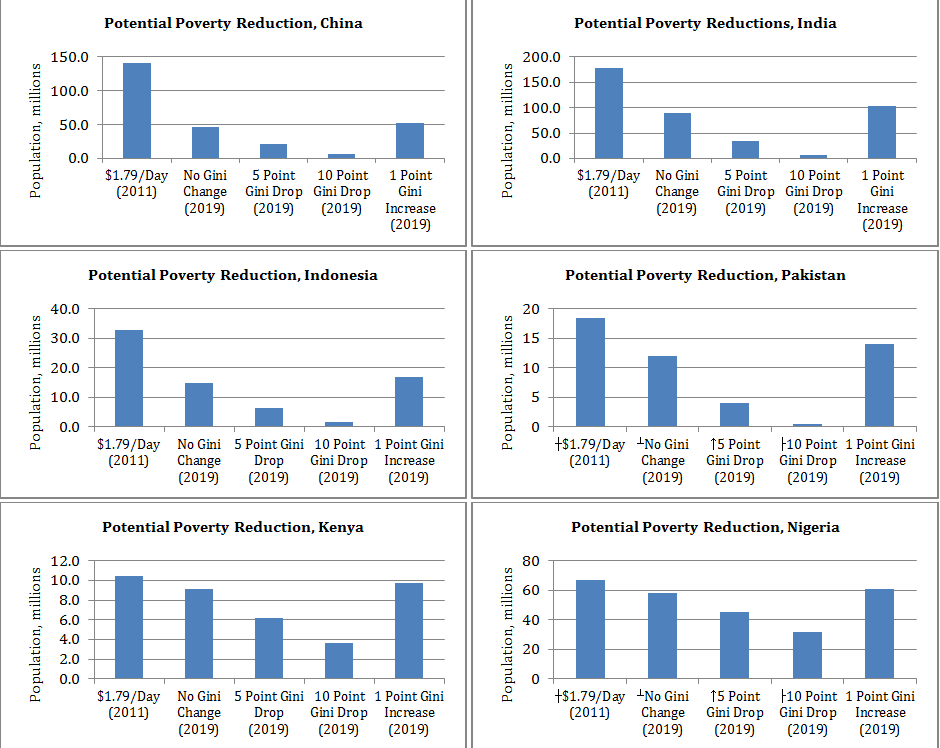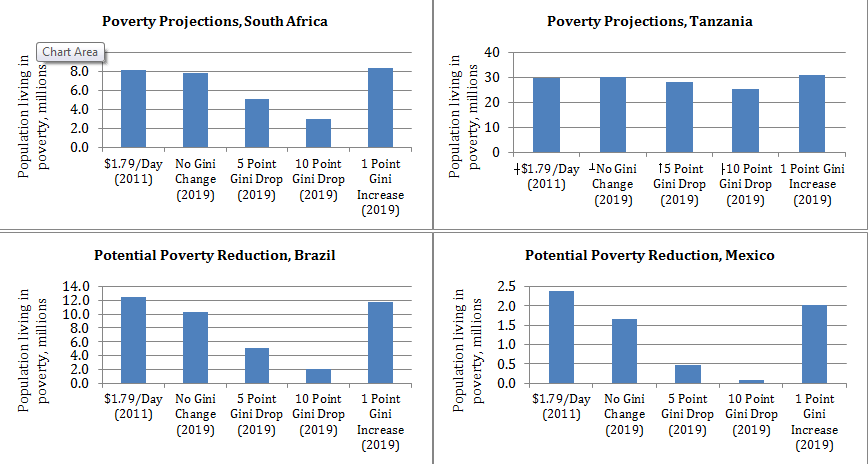Published on Oxfam America’s Politics of Poverty blog
Looking at projections in 10 countries.
For the most part, we anticipate that countries will grow their economies in the coming years. Growth means more financial resources available to reduce extreme poverty by creating jobs, increasing social services, and building stronger safety nets. However, if governments fail to ensure the benefits of growth are shared with the most vulnerable, then poverty reduction will be minimal. This can happen if the benefits of growth only accrue to the richest.
The charts below offer some hypothetical scenarios of how much poverty will reduce if it’s shared, and what will happen if either nothing changes, or if growth worsens inequality by only accruing to those at the top. The countries in the graphs represent where significant numbers of the world’s poor live, about 505.6 million people (or about 58% of the total in extreme poverty). The charts read like this: The far left bar shows the number living below a re-calculated poverty line of $1.79/day in 2011. The next bar shows how many will be in poverty in 2019 if the country’s inequality level doesn’t change. The next bar shows how many will be in poverty if inequality falls by five points on the Gini scale (a standard measure of inequality). Conversely, the bar on the far right shows how many will be in poverty if inequality goes up by just one Gini point.


It’s plain to see that growth alone will pull large numbers out of poverty in China, India, and Indonesia. Yet, growth will hardly make a dent in many other countries. In all cases, progress on poverty is faster when inequality falls. In these scenarios, inequality reduces when growth is projected to be more evenly distributed. We can suppose this happens because of pro-poor economic development, but there could be other reasons (what do readers think those might be?). Likewise, inequality becomes worse in the graphs when we project the gains of growth are not shared, and accrue disproportionately to those at the top. I’m curious to hear your ideas for what needs to happen so that economic growth is poverty reducing? What should governments be doing? What about the private sector?